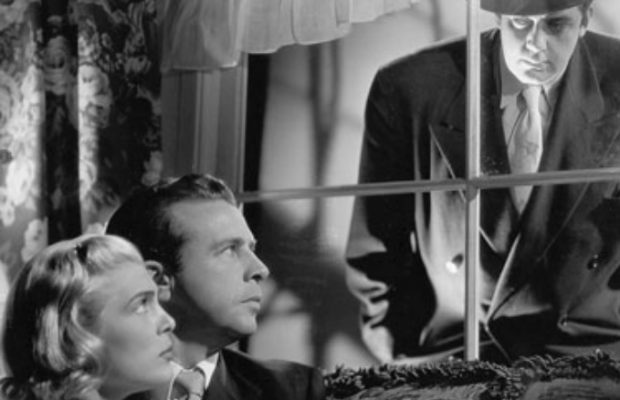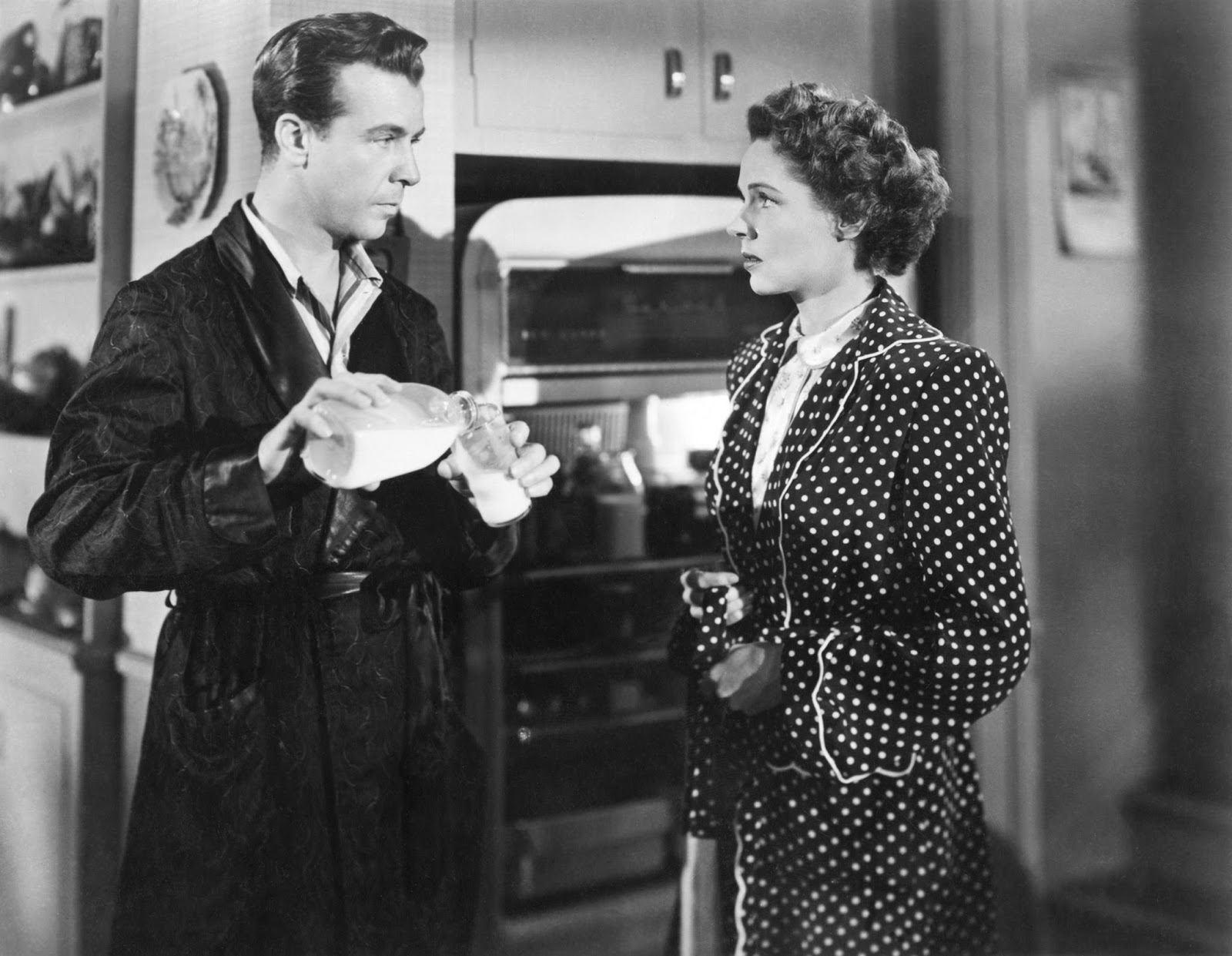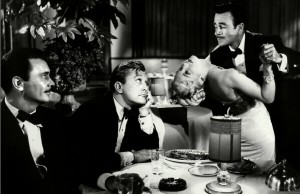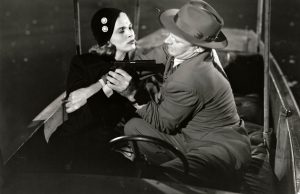Pitfall (1948)

Toronto Film Society presented Pitfall (1948) on Monday, January 16, 1989 in a double bill with So Evil My Love as part of the Season 41 Monday Evening Film Buffs Series “D”, Programme 3.
Production Company: Regal Films released by United Artists. Producer: Samuel Bischoff. Director: Andre de Toth. Screenplay: Karl Kamb, based on the novel, “The Pitfall” by Jay Dratler. Photography: Harry Wild. Editor: Walter Thompson. Music: Louis Forbes.
Cast: Dick Powell (John Forbes), Lizabeth Scott (Mona Stevens), Jane Wyatt (Sue Forbes), Raymond Burr (MacDonald), John Litel (District Attorney), Byron Barr (Bill Smiley), Jimmy Hunt (Tommy Forbes), Ann Doran (Maggie), Selmer Jackson (Ed Brawley), Margaret Wells (Terry), Dick Wassel (Desk Sergeant).
Pitfall made independently for United Artists release is a very attractive motion picture. It is a neatly constructed film that builds suspense as it goes along and reaches a sensible conclusion without frittering away its climactic interest and tension. Moreover Pitfall is a surprisingly moral entertainment, as palatable and effective a sample of cinematic sermonizing on marital mores of the times. In its handling of the problems that disturb the marriage of Dick Powell and Jane Wyatt, Pitfall mercifully eschews divorce as the one and only solution. Indeed there isn’t even the final traditional embrace that connotes–“and they lived happily ever after.” In these and other small, yet important details, such as the design of the sets and the way the principals dress, this picture has a realistic look which enhances its narrative values. Here is a sample of the realism that has been asked for in pictures in place of the extravagance in costume and production qualities which have thrown many a potentially good film off key.
There is nothing especially novel about Pitfall, which tells of a family man who slips momentarily from the path of propriety and pays a stiff penalty. Powell is an insurance man, bored with his humdrum, clock-ruled life. This makes him a setup for Miss Scott’s charms when he calls on her to collect gifts made by an absconder, now in jail. Their mutual attraction leads to one amourous night together and a guilty conscience. Raymond Burr, mountainous private eye, tries to make something of the incident because he has been spurned by Miss Scott.

This is the type of story the screen has presented time and again, but seldom as sensibly. The dialogue has a natural ring and for the most part the direction of Andre de Toth is plausible, steady and interesting. The acting is generally sound, even though Mr. Powell’s performance is not always as incisive and varied as one might desire. Still, Mr. Powell makes a credible character out of the insurance investigator, depicting a man’s desperate struggle with his conscience, his overwhelming sense of guilt and striving to spare his wife and son the shameful consequences of his indiscretion.
Jane Wyatt is excellent and altogether natural as the wife. And Lizabeth Scott, as the recipient of embezzled furs and jewels who unwittingly brings Powell to the brink of ruination, is provocative, and it is one of her best performances. As the heavy, literally and figuratively, Raymond Burr does a sinister and fascinating job. Being a big man, his weight, histrionically and otherwise, makes a strong impression on the screen.
Jimmy Hunt is cute as Powell’s son and has been given equally cute lines. Litel has only one scene as the lecturing district attorney.
Dick Powell was one of the roundest all-rounders in the history of Hollywood. He was crooner, film-star, director, producer and TV executive. His most successful manifestation seems to have been as TV executive. It is difficult now to fathom wherein lay his appeal as an actor–but in the 30s he was very popular indeed, as the leading man of innumerable Warner Bros. musicals. Cherubically smiling, he chased Ruby Keeler or Priscilla Lane, and was serious only when crossed by the producer who was always putting on the show featuring the songs which Powell was always writing. It was all so predictable; and though many WB musicals had admirable things in them, Powell’s performances weren’t any of them. He knew it. He fought for years to escape from the inane parts written for him, and finally emerged as a tough guy in the Bogart tradition. But, it must be said, only just.
He was born in 1904 in Mountain View, Arkansas, where he sang in the church choir, and was educated at Little Rock College. He worked for a telephone company for a while but was more interested in bands–he could play most instruments. He got a job with a band, and then toured with several different ones, as instrumentalist and vocalist, finally became emcee at the Stanley and Enright Theatres in Pittsburgh. Here he was spotted by a WB talent scout, who knew the studio was looking for a man to play the title-role in The Crooner. David Manners got the part but WB cast Powell as another crooner, rather wet–and a small part–in Blessed Event (1932). Powell indicated qualities beyond mere wetness and was signed to a long-term contract. And that was the beginning of his long and varied career. He died of cancer in 1963.
Sources: Variety and The Great Movie Stars, The Golden Years by David Shipman
Notes by Caren Feldman










Leave a Reply